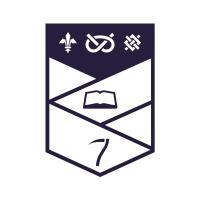ASTROPHYSICS AND CHEMISTRY B.Sc (Hons)
There are clear overlaps between Astrophysics and Chemistry, indeed the disciple of Astrochemistry is defined ‘as the study of the abundance and reactions of molecules in the Universe and their interaction with radiation’.
Through Keele's innovative combined honors programs you have the opportunity to study Chemistry alongside Astrophysics. Much of modern scientific research occurs at the boundary of different scientific disciplines and therefore graduates with a fundamental knowledge of both disciplines can have a particular advantage when moving into careers requiring knowledge of both.
In Astrophysics, you will learn to formulate and tackle problems – from below the level of the atomic nucleus to astronomical scales. Astrophysics is active wherever the laws of physics are being tested to the limit – and beyond. Keele will help you to use astronomical observations, mathematical models and computer simulation to develop theories explaining some of the most complex phenomena. You’ll develop your mathematics and computing skills, and apply them to solving a range of problems in the laboratory and beyond (you’ll have access to Keele’s own on-site observatory). We operate an open-door policy, which enables you to have excellent and flexible access to staff to seek advice or feedback on their work. This course is enriched by our research interests and international collaborative research programmes.
Our Chemistry courses are taught in our newly opened Central Teaching Laboratories and you will have hands on experience of using industry standard equipment and instrumentation.
In Chemistry you’ll develop a solid foundation of theory and practical skills, building to cover advanced concepts and contemporary issues in chemistry in later years. You can tailor your studies to reflect your interests, and learn how to pursue your own research in your final year. Our Chemistry courses are taught in our newly opened Central Teaching Laboratories and you will have hands on experience of using industry standard equipment and instrumentation. You’ll have hands-on experience with state-of-the-art scientific instruments and techniques in world class laboratories, and enjoy access to dedicated IT facilities. You’ll learn to use chemistry in problem solving, and to present your theories and findings confidently and imaginatively to your audiences. You can even spend a semester or year abroad or on placement in industry. To find out more about our range of Chemistry courses take a look at our Chemistry and Medicinal Chemistry course brochure.
Intakes
- Sep
Application Processing Time in Days: 30
Minimum English Language Requirements
| English Level Description | IELTS (1.0 -9.0) | TOEFL IBT (0-120) | TOEFL CBT (0-300) | PTE (10-90) | |
|---|---|---|---|---|---|
| Expert | 9 | 120 | 297-300 | 86-90 | |
| Very Good | 8.5 | 115-119 | 280-293 | 83-86 | |
| Very Good | 8 | 110-114 | 270-280 | 79-83 | |
| Good | 7.5 | 102-109 | 253-267 | 73-79 | |
| Good | 7 | 94-101 | 240-253 | 65-73 | |
| Competent | 6.5 | 79-93 | 213-233 | 58-65 | |
| Competent | 6 | 60-78 | 170-210 | 50-58 | |
| Modest | 5.5 | 46-59 | 133-210 | 43-50 | |
| Modest | 5 | 35-45 | 107-133 | 36-43 | |
| Limited | 4 | 32-34 | 97-103 | 30-36 | |
| Extremely Limited | < 4 | < 31 | < 93 | < 30 |
Job Opportunity Potential
96% of Keele graduates were in a job or further study within six months of graduating (DLHE, 2017)
Much of modern scientific research occurs at the boundary of different scientific disciplines and therefore graduates with a fundamental knowledge in both disciplines, can have a particular advantage when moving into careers requiring knowledge of both subject areas.
An Astrophysics degree from Keele will prepare you for many different careers, which need not be directly related to astrophysics. You could take up all sorts of roles in industry, management, and public services, including teaching, health and finance. Many employers recognise that the versatility and flexibility of astrophysics means that graduates possess a wide range of very valuable skills, from independent and critical thinking to the solving of sophisticated problems.
From your study of chemistry, you might work in industry, research or education; you could choose to become a chemical engineer, research scientist, toxicologist, patent lawyer, analytical chemist or technical writer. Many students go on to higher study after a first degree in chemistry, allowing them to specialise in an area of interest such as analytical, forensic, synthetic or materials chemistry and eventually work in a wide range of other specialist roles.
PSW Opportunity
- 2 years
Admission Requirement / Eligibility Criteria
A LEVEL REQUIREMENTS
- A Level requirement BBC
- A Level Chemistry and Physics or Maths at grade B. If Maths is presented without A Level Physics, please contact Admissions.
- A Pass in the Chemistry Science Practical is required.
If you don't think you'll meet the entry requirements specified, you may be able to gain entry to this course via a Foundation Year.
GCSE REQUIREMENTS
- Maths at C (or 4)
- English Language or English Literature at C (or 4)
BTEC
- BTEC requirements DMM
- You must have taken sufficient Maths, Physics and Chemistry units, please contact us for advice
If you don't think you'll meet the entry requirements specified, you may be able to gain entry to this course via a Foundation Year.
INTERNATIONAL BACCALAUREATE
- 29 points to include Higher Level Physics at 6 or above or Higher Level Maths at 6 or above plus Higher Level Physics at 4 or above AND Higher Level Chemistry at 6
ACCESS TO HE DIPLOMA REQUIREMENTS
- Obtain Access to Higher Education Diploma with 112 UCAS Tariff points including a minimum of 30 Level 3 credits at Distinction, to include sufficient Maths/Physics and Chemistry units, please contact us for advice.
India
CISCE / CBSE / West Bengal Class XII: 60% - 90% required depending on course. Plus any subject-specific requirements.
All other State Boards Higher Secondary Certificate (HSC) / Standard Class XII: 65% - 95% required depending on course. Plus any subject-specific requirements.
2 years of study must have been completed.
English Requirements
CISCE/CBSE Class XII: 70% or above in English, depending on course.
All other State Boards Class XII (except Punjab or Mohali School Education Board): 75% or above in English, depending on course.
Must have been completed within the last 5 years.
The study should be taught in English. Otherwise, IELTS is required.
- Course Type: Full Time
- Course Level: Bachelors/UG Degree
- Duration: 03 Year
-
Total Tuition Fee:
48000 GBP
Annual Cost of Living: 9207 GBP
Application Fee: N/A
Similar Programs
- VETERINARY MEDICINE AND SURGERY - BVETMS at Keele University
- SPECIALIST COMMUNITY PUBLIC HEALTH NURSING: SCHOOL NURSING PATHWAY - BSC (HONS) at Keele University
- SPECIALIST COMMUNITY PUBLIC HEALTH NURSING: HEALTH VISITING PATHWAY - BSC at Keele University
- REHABILITATION AND EXERCISE SCIENCE - BSC (HONS) at Keele University
- RADIOGRAPHY (DIAGNOSTIC IMAGING) - BSC (HONS) at Keele University
- PUBLIC HEALTH - BSC (HONS) at Keele University

